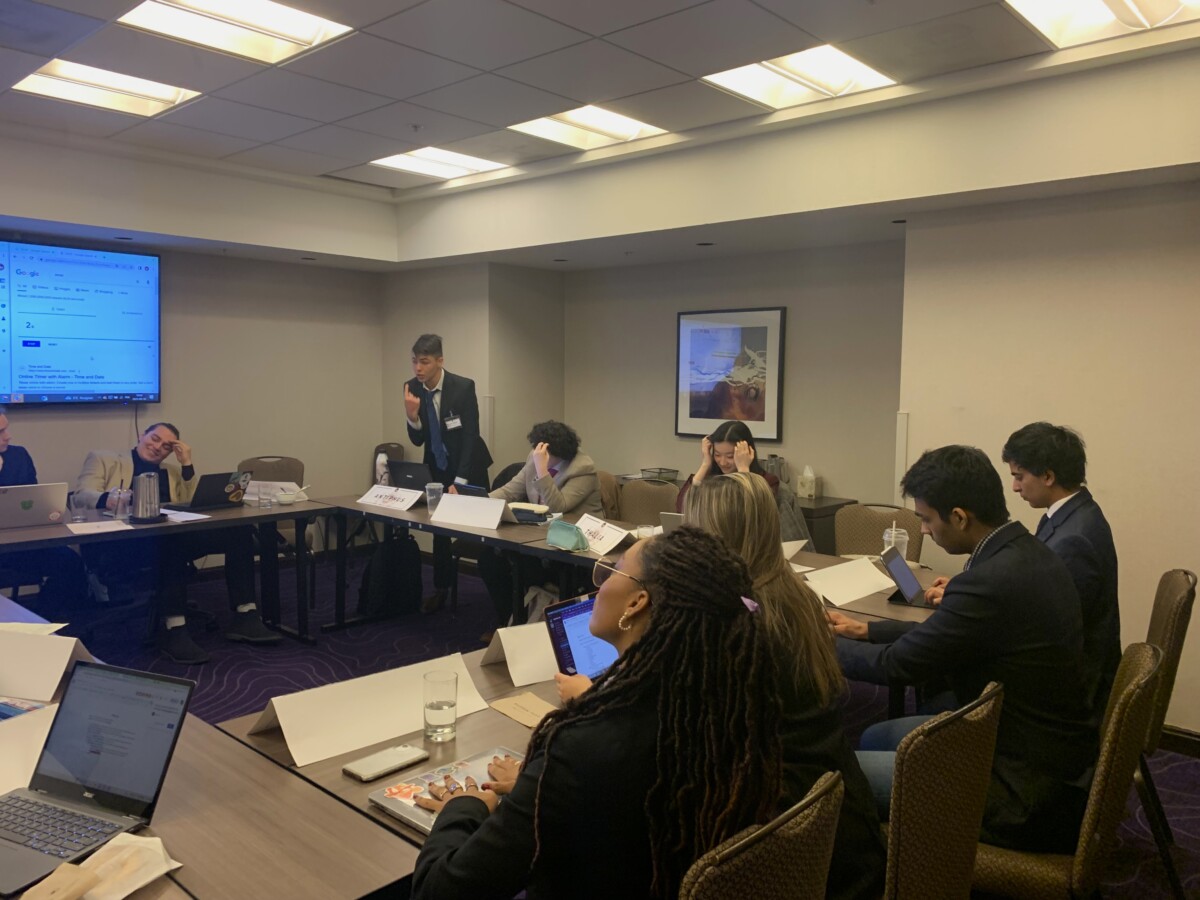Delegates from all over the world visited Montreal for the CONMUN conference
The fourth edition of the Concordia Model United Nations (CONMUN) conference took place last week. The annual conference hosted by Concordia, was held this year at the hotel DoubleTree by Hilton. Representatives from delegations across the world arrived in professional attire to compete in the event.
“Concordia has recently risen in the Model UN rankings, we’re fairly in the top 25 schools and our image is growing,” elaborated Rowen Tanguay, a Concordia staff member for Model UN. “More schools and better delegates are being attracted to our conference each year.”
The aim of the conference is to simulate an United Nations conference as accurately as possible. During a simulation, delegates gather around tables to debate one another. The delegates raised a placard, on which the country or the person they represented was written. The Chair and the Vice Chair of the simulation will moderate the discussion.
Danisha Decius, who is part of the Concordia secretary team for Model UN, explained that there are committees made up of general assemblies, specialized agencies, and crisis committees.
CONMUN has been ranked as a Best Delegate conference since 2019.
“It is a great way to bring people not only from Canada, but also from the United States and abroad to see how great Concordia is and the city of Montreal,” said Liam Quraeshi, an assistant crisis director with Concordia’s Model UN team.
The main theme of this year’s conference was climate change, but conferences can focus on any subject that affects the international community, like artificial intelligence.
Quraeshi said that in a typical CONMUN conference, 40 to 50 delegates represent countries or political actors. The countries selected tend to be the most influential like the U.S. and China. But sometimes, smaller countries like Côte d’Ivoire and Kenya are chosen depending on the debate theme of each conference.
Tanguay finds the Model UN environment fantastic. He thinks that the simulations are theatrical, but he loves them because he considers himself a theatrical person as well.
He is interested in politics. “Roleplaying as a political agent is a particularly appealing concept,” said Tanguay.
He appreciates how Model UN skills are applicable in everyday life. “I think it is a good program at the very least in terms of extracurricular activities,” he added. “It is a phenomenal activity for sharpening your social skills and forming lasting connections with incredible people.”
Quraeshi said he particularly loves when the conference is held in Montreal because he prefers the experience here a lot more.
“It is closer to where I live, I am very in touch with the city, in terms of best places to eat, the public transport, and just showing people around having a good time,”
he said.
